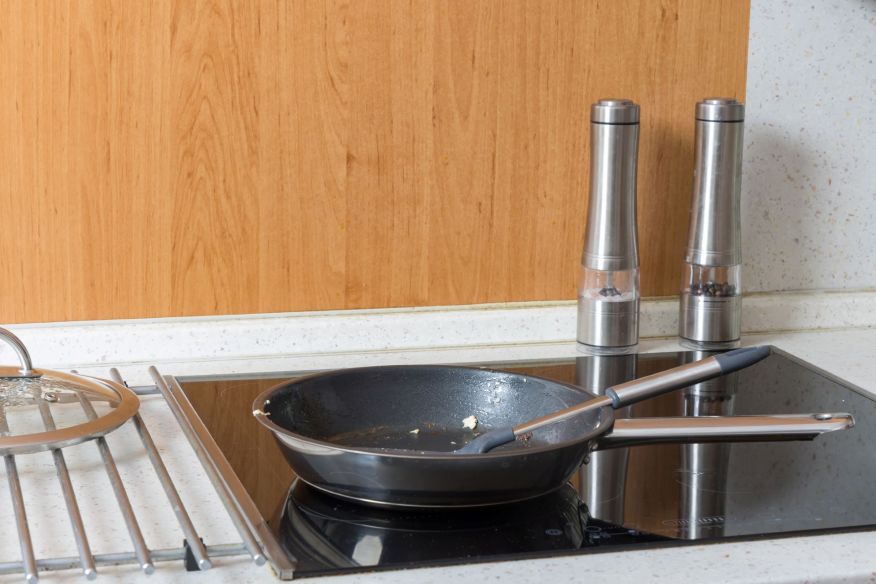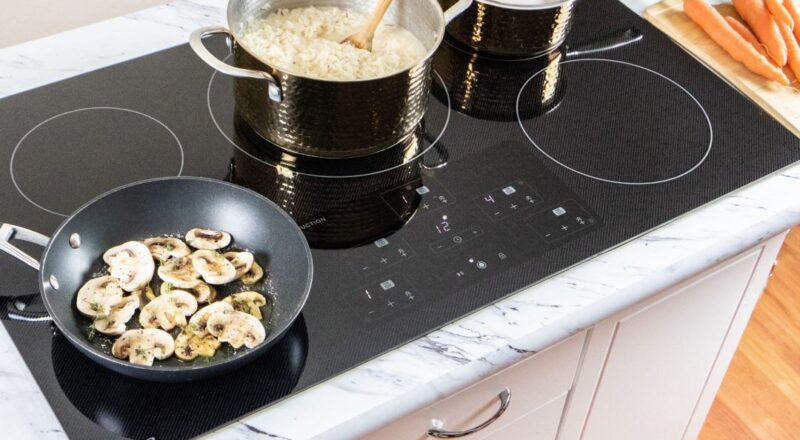Cooking enthusiasts and kitchen professionals alike have long appreciated the versatility and durability of cast iron cookware. When it comes to simmering soup, using cast iron on induction hobs offers a unique combination of benefits that can elevate your culinary experience. In this guide, we’ll explore the nuances of using cast iron for cooking soup on induction cooktops, ensuring you get the most out of your cooking endeavors.

Why Choose Cast Iron for Simmering Soup?
Cast iron is renowned for its excellent heat retention and even heat distribution, making it an ideal choice for simmering soups. The material’s ability to maintain a steady temperature ensures that your soup cooks evenly, preventing any hot spots that could lead to burning or uneven cooking.
Understanding Induction Cooking
Induction cooktops use electromagnetic fields to directly heat the cookware, offering precise and efficient cooking. When paired with cast iron, which is naturally magnetic, induction cooktops can heat up quickly and maintain consistent temperatures, perfect for simmering.
How Induction Works with Cast Iron
Induction cooking relies on creating a magnetic field that induces heat in the cookware. Cast iron’s ferromagnetic properties make it a suitable candidate for induction cooking. The result is a cooking surface that heats up rapidly and retains heat, providing an ideal environment for simmering soups.
The Benefits of Simmering Soup with Cast Iron on Induction
Combining cast iron with induction cooking offers several advantages:
- Energy Efficiency: Induction cooktops are more energy-efficient than traditional gas or electric stoves because they heat the cookware directly.
- Temperature Control: Induction cooktops provide precise temperature control, allowing you to maintain a constant simmer without fluctuations.
- Quick Heating: Cast iron heats up quickly on induction, reducing cooking time and energy consumption.
- Safety: Induction cooktops remain cool to the touch, reducing the risk of burns or accidents in the kitchen.
Preparing Your Cast Iron for Induction Cooking
Before using your cast iron cookware on an induction cooktop, it’s essential to ensure that it is clean and well-seasoned. A well-seasoned cast iron pot or pan will not only enhance the flavor of your soup but also prevent sticking. For tips on cleaning and maintaining your cast iron, check out this manual cleaning guide.
Best Practices for Simmering Soup on Induction
When simmering soup with cast iron on induction, consider the following best practices:
Choose the Right Size Pot
Ensure that the cast iron pot you use matches the size of the induction burner to maximize efficiency and even heating. A pot that is too small may not heat evenly, while a pot that is too large may not heat up adequately.
Maintain a Consistent Temperature
One of the key benefits of induction cooking is precise temperature control. Use this to your advantage by setting your induction cooktop to the desired simmering temperature and adjusting as needed to maintain a gentle simmer.
Use a Lid
Cover your pot with a lid to help retain heat and moisture. This not only speeds up the cooking process but also enhances the flavors of your soup.
Common Challenges and Solutions
While simmering soup with cast iron on induction is generally straightforward, you may encounter a few challenges:
Issue: Soup Sticking to the Pot
Solution: Ensure your cast iron is well-seasoned and maintain a low, steady temperature to prevent sticking. Stirring occasionally can also help.
Issue: Uneven Heating
Solution: Make sure your cast iron pot fits the induction burner properly and use a lid to help distribute heat evenly.
FAQs
Can I use any cast iron pot on an induction cooktop?
Yes, as long as the cast iron pot has a flat bottom, it should work well on an induction cooktop. For more insights, visit even heating guide.
Does induction cooking affect the seasoning of cast iron?
Induction cooking does not negatively affect the seasoning of cast iron. In fact, the even heating can help maintain the seasoning over time.
What soups are best made in cast iron on induction?
Cast iron is ideal for hearty soups that require long simmering times, such as stews, chowders, and broths.

Conclusion
Simmering soup with cast iron on induction combines the best of both worlds: the even heat distribution and retention of cast iron, and the precision and efficiency of induction cooking. With the right techniques and care, you can create delicious, flavorful soups that will impress any palate. For more information on cast iron and induction cooking, visit this expert guide.
This article contains affiliate links. We may earn a commission at no extra cost to you.

